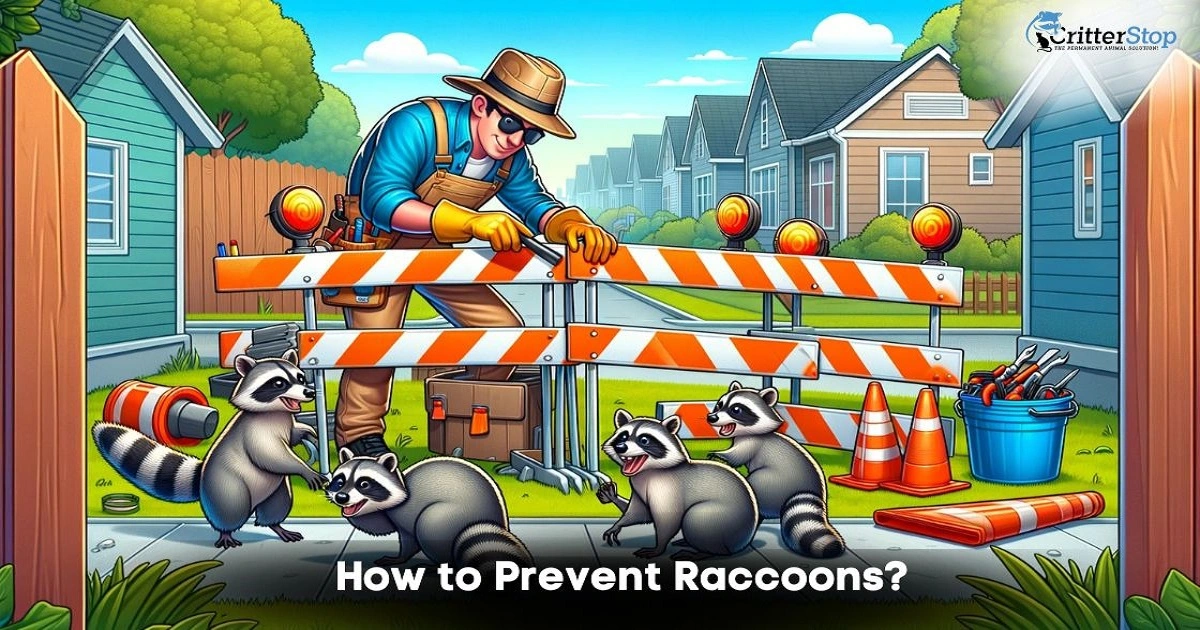
Raccoons are part of the local wildlife in North Texas neighborhoods. While they are fine minding their own business, they can cause thousands of dollars of damage if they get into your attic or walls.
These furry critters love trash cans and can damage your home and garden. If you're looking for ways to keep raccoons off your property or handle raccoon removal, there are several effective strategies you can try.
Most pest removal companies will tell you that the best way to prevent raccoons from entering your property is to secure your trash cans. Like most animals, raccoons are attracted to food—except they have an even stronger sense of smell—and they will often rummage through garbage in search of a meal.
Making sure your garbage cans have tight-fitting lids is well worth the time. If possible, storing them in a garage or shed helps tremendously. It's also a good idea to avoid putting out your trash can until the morning of pickup to minimize the amount of time it's exposed.
Another way to avoid thinking about raccoon removal costs beforehand is to eliminate potential food sources. This means not leaving pet food outside, picking up fallen fruit from trees, and cleaning up any spilled birdseed. Raccoons are opportunistic creatures and will take advantage of any easy meal they can find. By removing these temptations, you can make your property less appealing to these critters.
If you read this article and are wondering what you can do to keep raccoons away, or how much does raccoon removal services cost, it's probably time to hire a professional like Critter Stop! Our team specializes in situations like yours, and we can help solve your issue more effectively and efficiently than our competition. Give Critter Stop a call and see why our customers rave about us.
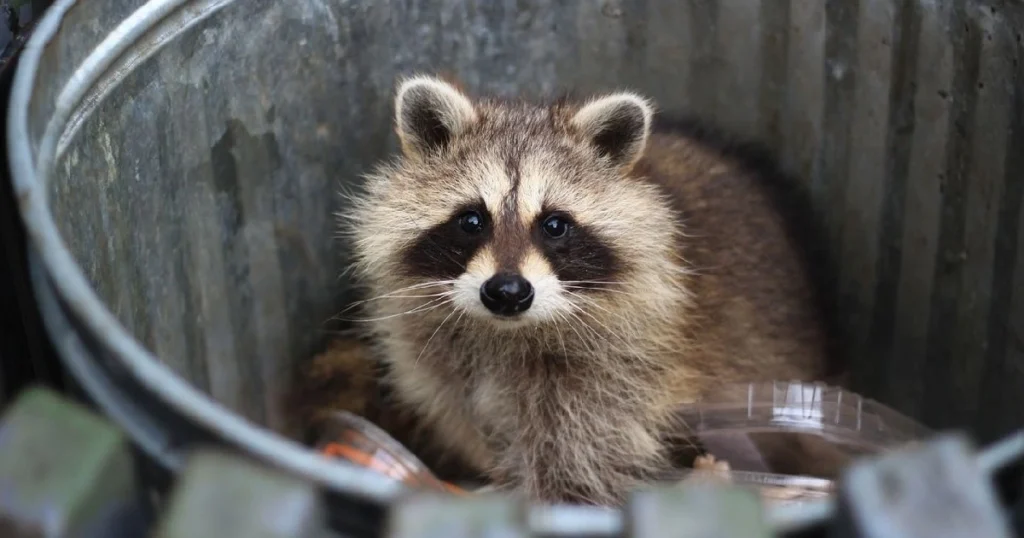
Raccoons are nocturnal mammals that can be found throughout North America. Raccoons are famous for their black mask and ringed tails. They can grow up to 3 feet in length and weigh up to 30 pounds. Raccoons are omnivores, eating both plants and animals. They are opportunistic feeders that will scavenge for food in trash bins, gardens, and even pet food dishes.
Raccoons are adaptable creatures that can thrive in many different habitats, including prairies (like North Texas), forests, wetlands, and suburban areas. They are skilled climbers, easily climbing up stucco and brick walls, trees, and other structures to gain access to attics, chimneys, and other potential nesting sites, which makes raccoon removal more challenging.
Most pest control experts will tell you that raccoons are also incredibly intelligent. They have been observed using tools to access food, such as rocks to break open shells or sticks to fish for food in water. They also quickly figure out live traps. If a raccoon is caught in a trap, it often becomes” trap-wise” and avoids live traps for several years after the experience. If you wonder how much does it cost to remove raccoons, it always depends on how savvy the raccoon is.
Despite their cute and curious appearance, raccoons can become a nuisance when they invade human habitats. A rabid raccoon can damage property, including insulation, ductwork, eaves, and attic vents, spread disease, and potentially, worst of all, pose a threat to pets and small children. It is wise to be proactive in preventing raccoons from entering your property and discouraging them from making your home their own.
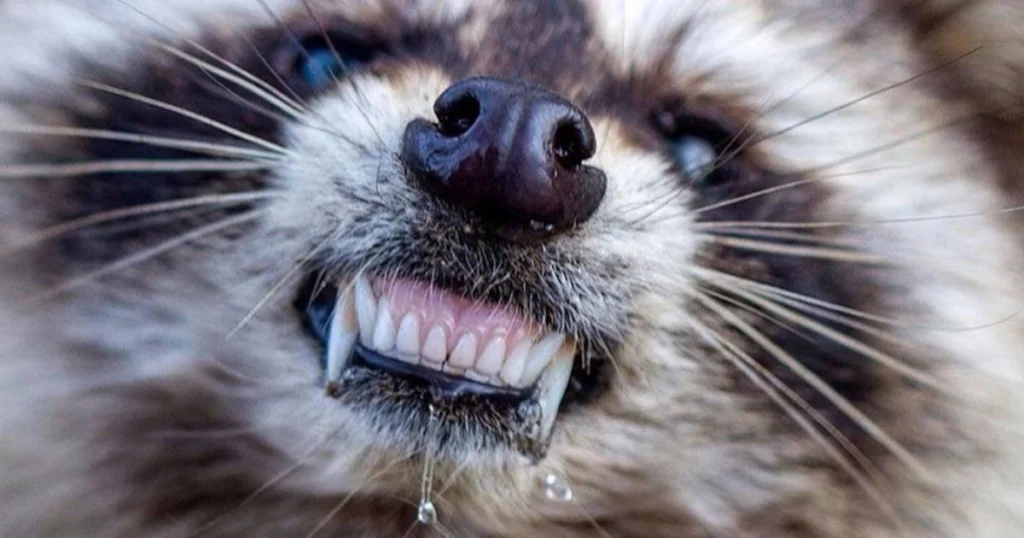
Raccoons are a common problem for homeowners, especially those who live in areas with a high population of these animals. They are fierce scavengers, and they can get into almost anything. Raccoons can cause various problems for homeowners, including property damage, health hazards, and nuisance behavior.
One of the most significant problems posed by raccoons is all things related to property damage. These animals are notorious for their ability to get into almost anything, including trash cans, gardens, and even attics. They can cause damage to roofs, walls, and insulation while trying to gain access to an attic or crawl space.
Given their stationary nature, a raccoon can set up shop at your home to have a parade of baby raccoons living at your home rent-free. They also damage gardens and landscaping by digging up plants and eating fruits and vegetables. You would be surprised to learn how many people google “raccoons in attic removal” just because they realize too late they have raccoon squatters living with them.
Another problem posed by raccoons is the potential health hazards they can bring. Raccoons are known carriers of several diseases, including rabies, which can be given to humans and other animals through bites or scratches.
Even if you don’t come in direct contact with a raccoon family, they do carry parasites, such as fleas and ticks, which can infest homes and cause health problems for residents. If they die on your property, that causes another whole set of issues. Dead raccoon removal is not something you can handle without risking your health.
Finally, raccoons can be a nuisance due to their noisy behavior and tendency to raid anything that seems attractive. Other critters can wreak havoc on your house, but raccoons are not a one-time visit nuance. They look around your house looking for entry holes and hide in hard-to-reach areas.
They are nocturnal, but one raccoon makes enough noise to challenge a nest of mice, which can make it difficult for homeowners to get a good night's sleep. Their scavenging habits can create a mess and attract other wild animals to the area.
Overall, raccoons can be a significant problem for homeowners. It's wise to be proactive when removing raccoons to prevent them from getting onto your property and into your home, avoiding property damage, health hazards, and nuisance behavior. It's also worth considering manual removal if they have set up shop at your property.
Raccoons are known for their cute and fluffy appearance, but they can be very destructive if they are left to live in your attic or walls. Understanding raccoons’ behavior can help you protect against them from coming onto your property again in the future.
Raccoon prevention is a serious, urgent matter. Raccoon removal can't be put off for too long. Raccoons can create an excessive amount of droppings, which creates a serious health concern and the cost of raccoon removal.
Raccoons are opportunistic eaters and will consume almost anything, including garbage, pet food, and garden crops. They are nocturnal and can easily climb trees, fences, and walls to access food or water sources. Bird baths and pet water bowls are common water sources that will draw them in.
Since raccoons are opportunistic feeders with a diverse diet, raccoons do eat bird seed, making bird feeders an attractive target for them.
Whether it's common birdseed or specific types like safflower seeds, raccoons are likely to munch on them if given the chance. If you’ve ever wondered, "Do raccoons eat bird seed?" or "Do raccoons eat seeds?" the answer is a resounding yes.
This adaptability in their diet means that raccoons will eat bird seed if it’s easily accessible. So, if you're asking, "Will raccoons eat bird seed?" rest assured, they certainly will, including a variety of seeds like safflower seeds.
Raccoons are known for their ability to create dens in various locations, including trees, attics, and crawl spaces. They typically mate in the early spring and can have litters of up to seven babies. If you suspect raccoons are nesting in your home, we highly recommend calling a professional to remove them safely. Many, such as Critter Stop, will provide a free inspection and estimate!
Raccoons have adapted well to urban environments and can thrive in cities and suburbs. They are intelligent creatures and can easily figure out how to access food and shelter. To repel raccoons from entering your home, make sure to secure all entry points, such as chimneys and vents.
By understanding raccoon behavior, you can take the necessary steps for manual removal and prevent them from entering your property and causing damage.
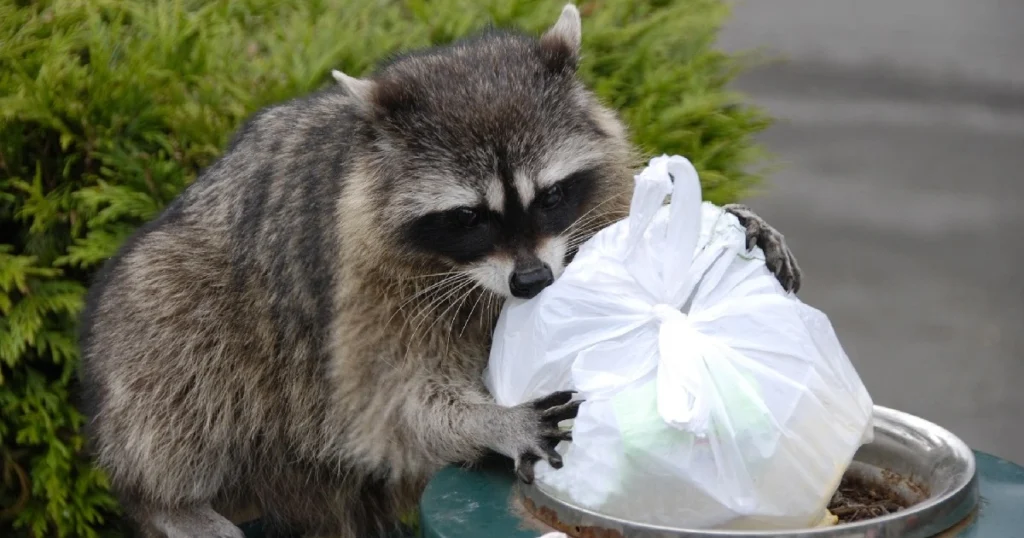
Raccoons are a common sight in many North Texas residential areas, but they can cause a lot of damage to your property if they decide to make it their home. If you can recognize the signs of raccoons, you can take the necessary steps to keep them away.
One of the most obvious signs of raccoons' presence is their tracks and marks. Raccoons have five appendages on their front and hind feet, and their tracks are often larger than those of a house cat. Young raccoons also have distinctive hand-like prints, with the front feet having a thumb-like appendage that sticks out to the side. Raccoons will often leave claw marks on surfaces they climb, such as trees or fences.
Raccoons are known for their destructive behavior, and they can cause a lot of damage to your property. They will often dig through garbage cans and compost piles in search of food, and they can also damage gardens and landscaping. Raccoon damage may also include holes in roofs, soffits, attic vents, and ducts to gain access to attics and crawl spaces.
Raccoons are nocturnal animals, so you may not see them during the day. However, you may hear them at night, especially if they are in your attic or crawl space. Raccoons are also known for their distinctive chattering and growling noises, which they use to communicate with each other. If a raccoon is out and about during the daytime, it may be a sign that it is sick or injured, and you should contact animal control immediately.
By identifying the signs of raccoon presence, you can take the necessary steps to keep them away from your property. This may involve bringing your garbage inside your garage, taking down your bird feeder and cleaning up the bird seed, installing fencing around your garden, and sealing up any holes or gaps in your home's exterior. If you're a busy person, you can always pass these guidelines to your cleanup services.
Raccoons can carry a handful of diseases that can be transmitted to humans and pets. Don't be fooled by the pretty sight of a raccoon mother carrying raccoon babies. These little creatures can pass these diseases:
Raccoons are pest problems that can cause damage to both homes and commercial properties, including:
Raccoons can pose a risk to pets, particularly small dogs and cats. They may attack pets if they feel threatened or if they are competing with raccoon problem raccoons for food. Additionally, raccoons can transmit diseases to pets, including rabies and leptospirosis. Remember, if they can infect humans, they can also affect your pet!
To minimize the health and safety risks associated with raccoons, it is wise to be proactive in keeping them away from your property or to set up multiple traps to catch the ones that dare get close. This includes adequately securing garbage, removing common food sources such as bird feeders and pet food, and sealing up any entry points into your home.
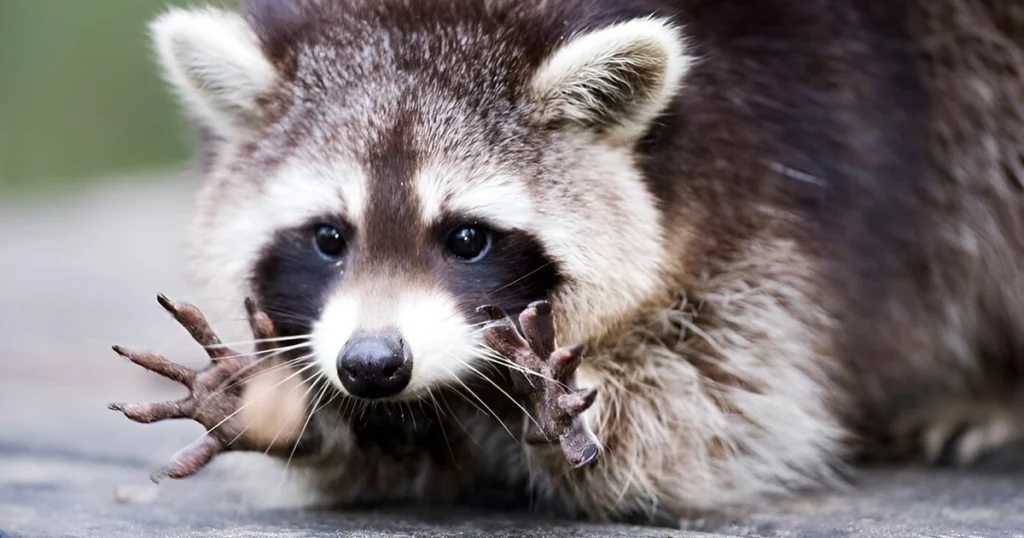
Raccoons are known for their scavenging abilities and can be a nuisance to homeowners. However, there are some preventative measures you can take to keep raccoons away from your home or commercial property.
Raccoons are attracted to garbage, not bird food, so it's important to manage your garbage properly. This means storing your garbage in a secure container with a tight-fitting lid. If possible, keep the garbage containers in a garage or shed until garbage day and secure the lid on them. Don't leave garbage bags out unprotected overnight, as this can attract raccoons and other animals.
Raccoons are known to nest in attics, crawl spaces, and chimneys. To prevent this animal from nesting on your property, it's important to seal any potential access points. This includes sealing gaps in the roofline, installing chimney caps, cutting any tree branches that provide easy access to your house, and securing crawl space entrances.
Raccoons are opportunistic and not very picky when it comes to food. They will eat almost anything. To prevent raccoons from finding food sources on your property, it's important to remove any potential food sources. This includes securing pet food, removing fallen fruit from trees, and cleaning up any food scraps or spills.
If you have a chicken coop, fruit tree, fish pond, or vegetable garden, realize these are like magnets for our little masked bandits! Since they cannot be removed like most other food sources, ensuring wire mesh and exclusion barriers are properly and securely installed on your chicken coop and garden compost bin, if you have either of these, is a critical step. You can consult with raccoon removal services if you need guidance on how to do this.
By following these preventative measures, homeowners can reduce the likelihood of raccoons on their property.
There are several commercially available repellents that can be used to keep raccoons away from your property. These repellents usually contain substances that are unpleasant to raccoons, such as predator urine, ammonia, or capsaicin. Some raccoon repellents come in the form of sprays, while others are granules that can be spread around the perimeter of your property.
If you want to deter raccoons but prefer to use natural and homemade methods to keep raccoons away, there are several options available. One common method is to sprinkle cayenne pepper or chili powder around the areas where raccoons are likely to enter your property.
Raccoons also try to avoid bright lights and loud noises, which they perceive as indicating danger. While not bulletproof, motion-activated sprinklers and/or yard lights can deter raccoons.
While repellents and deterrents can be effective in keeping raccoons away from your property, they do have their limitations. Raccoons can become accustomed to the smell of certain repellents over time, rendering them ineffective. Additionally, heavy rain or wind can wash away granular repellents, reducing their effectiveness. Homemade methods may also be less effective than commercial repellents.
It's important to note that no repellent or deterrent is 100% effective in keeping raccoons away. The most effective way to discourage raccoons from coming to your property is to eliminate potential food sources and access points.
When raccoons invade your property, it can be tempting to handle the raccoon situation on your own. But the scope of work and urgency of the matter should not be underestimated. Critter Stop recommends contacting their services if:
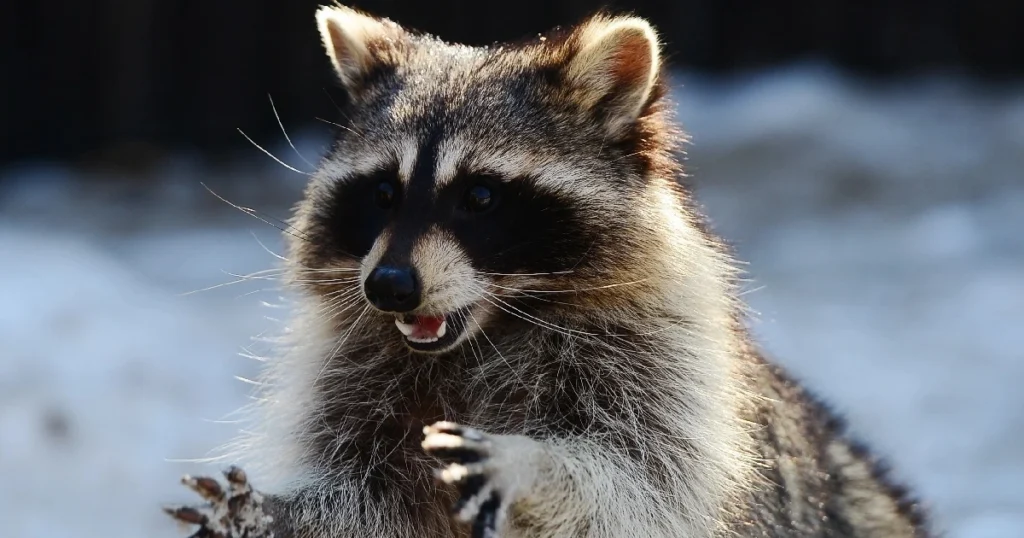
Professional wildlife control services, such as Critter Stop, have the knowledge, experience, and tools necessary to safely and humanely remove raccoons from your property. When you contact a wildlife removal expert, you can expect:
Overall, professional wildlife control services can provide a safe and effective solution to raccoon infestations on your property. If you are wondering about the cost to remove raccoons, keep in mind that each job is tailored to the needs of each client and the layout of their property.
As such, there’s no such thing as an average price since an inspection takes place to set the costs. It is important to recognize when it is time to call in the professionals and trust their expertise in handling the situation.
While it's important to protect your property from raccoons, do not forget that they are a part of the natural ecosystem and that it is very possible to live peacefully together. Encouraging co-existence with raccoons and other wildlife can be done responsibly by:
By promoting responsible co-existence with raccoons, you can help maintain a healthy balance between humans and wildlife.
Overall, by taking preventative measures and encouraging co-existence with raccoons, you can keep raccoons away from your property without causing harm to these fascinating creatures.
In summary, there are several ways to deter raccoons from invading your property. Some of the best practices to get rid of raccoons include:
By following these preventative measures, you can greatly reduce the likelihood of removing raccoons from your property. These are particularly important in the early stages of keeping raccoons off your property. Once all the raccoons have moved on, you may be able to, for example, put your bird feeder back out.
You don’t know who to call for raccoon removal? A wildlife or pest control professional can help you eliminate raccoons and minimize the damage they can cause to your property. If you live in Texas, Critter Stop is here to help you. We can seal off common entry points with sheet metal and wire mesh and sanitize areas with the smells raccoons were drawn to in the first place (usually pheromones or feces from mice, rats, or other raccoons).
If you’re considering raccoon in attic removal cost, you'd better give us a call. We can run a free inspection to let you know which course of action we’ll take to deal with your raccoon issue. Other pest control companies can sometimes humanely get rid of raccoons, but we are guaranteed to do so in a way that complies with laws and regulations.
If you are a homeowner or commercial property owner in Texas and require raccoons in the attic removal services, call Critter Stop at (214) 234-2616 for a free inspection and estimate. We take pride in offering the best value raccoon removal services in the state.
Secure trash with tight lids, store garbage inside until pickup day and eliminate outside food sources like pet food.
Raccoons are attracted to easy meals. Removing food reduces their interest in your property, making it less appealing.
Contact Critter Stop immediately for a professional evaluation and safe removal of raccoons to prevent damage and health risks.
Look for tracks, overturned garbage, or hear nocturnal noises. These signs indicate raccoon activity.
Raccoons may carry rabies, leptospirosis, and roundworm, which pose significant health risks to humans and pets.
Yes, try using cayenne pepper or ammonia around potential entry points. However, professional solutions are more effective.
If DIY methods fail, raccoon damage is evident, or multiple raccoons are present, it’s time to call Critter Stop for expert help. Our company offers a custom solution tailored to your needs since there is no such thing as an average cost of raccoon removal.
We are glad you asked. Critter Stop has the experience and reputation to handle every task related to raccoon removal from your property. Remember that there’s no such thing as cheap raccoon removal, as our work is thorough and complete to ensure that no new raccoons get in.
Visit our Critter Library and learn more about our furry friends







